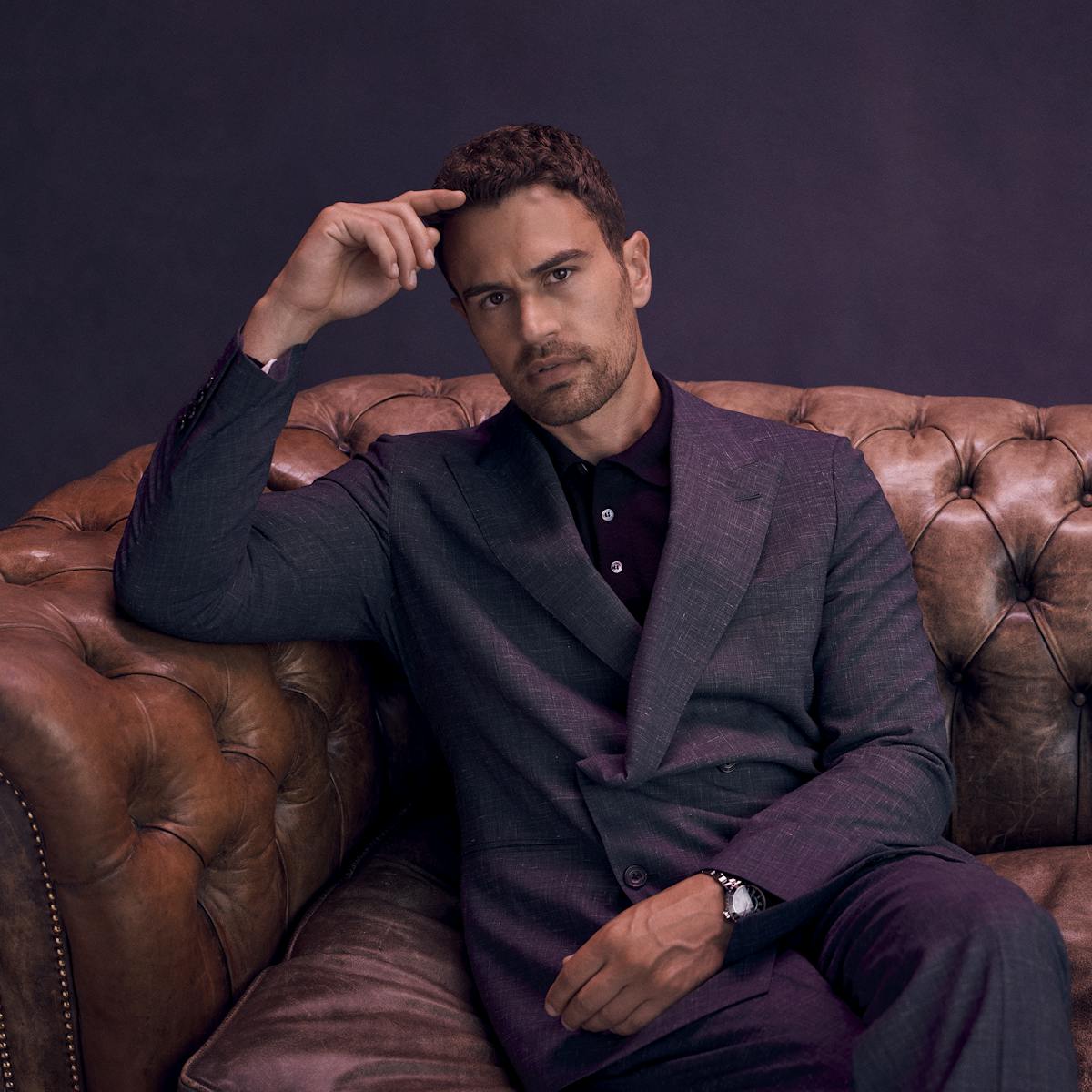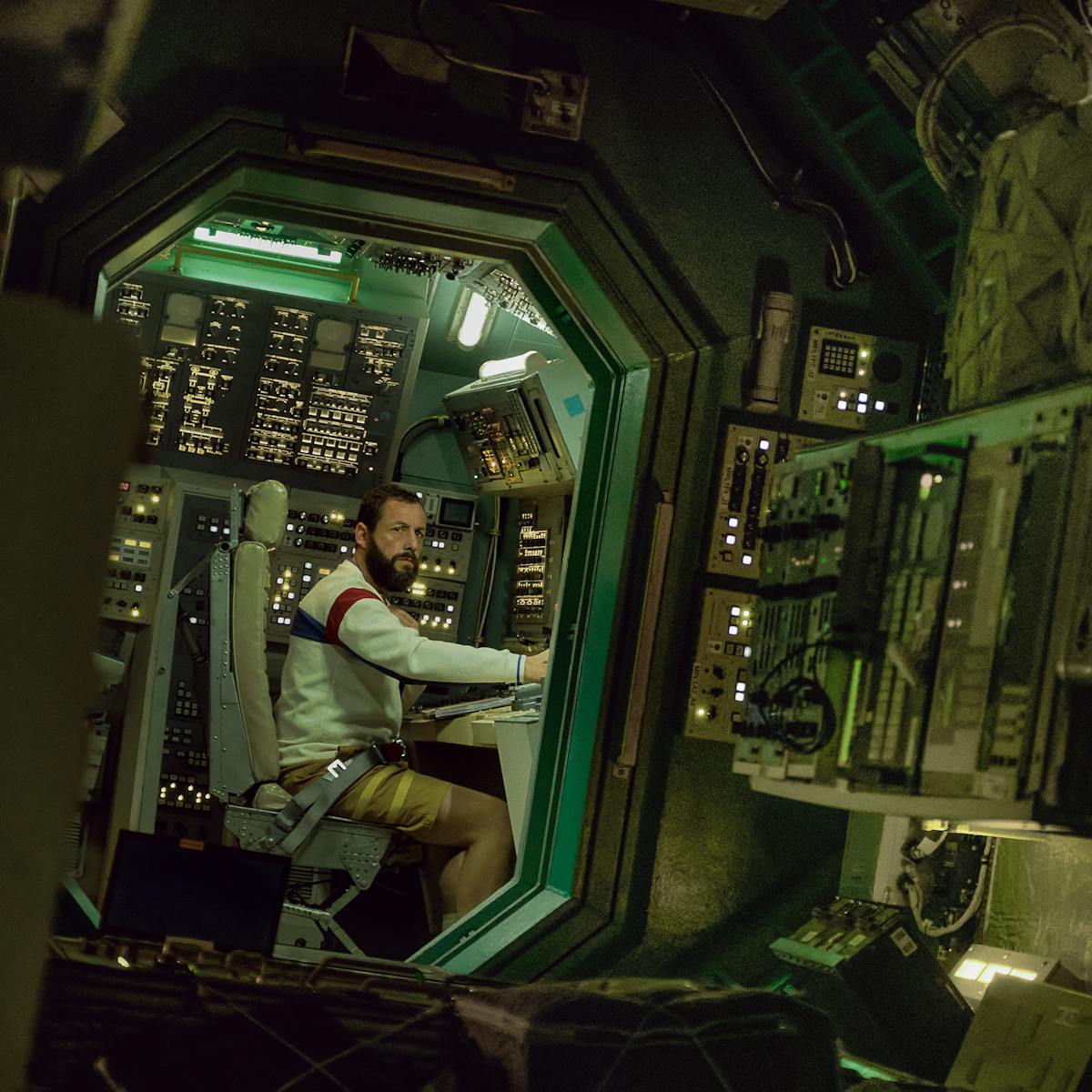David Benioff, D.B. Weiss, and Alexander Woo, the showrunner trio behind the long-awaited series 3 Body Problem, discuss the excitement and challenges of adapting an epic masterpiece.
Even though the showrunners of 3 Body Problem had decades of experience adapting popular book series to create Emmy-winning television — David Benioff and D.B. Weiss with Game of Thrones, Alexander Woo with True Blood — transforming Liu Cixin’s Hugo Award-winning sci-fi trilogy presented a few novel challenges. “As books, they work enormously well, and we were excited by the challenge of making a show that makes you feel the way that we felt when we read them,” says Weiss. “It isn’t exactly the same as just translating the books chapter and verse because we don’t think that would make you feel the way we felt reading the books.”
Known collectively as Remembrance of Earth’s Past, Liu’s trilogy is, shall we say, expansive. Over the course of more than 1,500 pages, the Chinese author weaves a tale that’s rich in high-level physics, theories of war, and human drama, and presents a host of thought-provoking questions, the most important one being: What would happen if we knew an alien invasion was coming, but we had four hundred years to prepare? The answer factors in international politics, questions of morality, and even factions that welcome — and assist — an alien arrival. Encompassing Liu’s sweeping themes would surely be difficult on its own, but in translating the books for television, Benioff, Weiss, and Woo needed to devote attention to developing the novels’ protagonists who don’t often meet.
“My focus was on the ideas, and the ideas are extraordinary,” says Woo. “They are unlike anything I’ve ever read, and it’s hard for me to even conceive of how a human being could have come up with them. But having worked on a show — [as have] David and Dan, obviously — where the characters took you through a journey of years, I think [characters] are the secret to a television series that really gets under your skin and becomes something living.”
The 3 Body showrunners centered their series on a group called the Oxford Five, high-level physicists and longtime friends who find themselves at the center of a harrowing mystery, as influential scientists around the world begin dying one by one, and they witness occurrences that modern science can’t explain. Calling on a cast and crew that blends many of the familiar faces of Game of Thrones with new and exciting talents, 3 Body Problem introduces audiences to a monumental universe that feels entirely possible and unsettling to imagine.
Benioff, Weiss, and Woo talked to Queue about translating hard science fiction for the screen, the chemistry of their three-showrunner partnership, and the thrill of building an entirely new universe.
An edited version of the conversation follows.

D.B. Weiss, Alexander Woo, and David Benioff
Photograph by Austin Hargrave
Miranda Tsang: What excited you about making this series?
D.B. Weiss: When we first read these books, several things hit us. One is that we’d never read anything quite like this before. It’s not that we hadn’t read or seen science fiction before or encountered stories about — spoiler alert — aliens before, but the way that Liu Cixin’s mind works is so different from that of any other writer we’d read. Just by taking it seriously and by thinking really long and hard about it, he takes what could actually happen to a more out-there, cosmically different place than any other thing we were aware of.
Alexander Woo: I think we’ve all gotten to this point in our careers where we have a little bit of agency in choosing what projects to take on, and making a TV show is so all-encompassing that if you don’t love it and feel energized by it, it is not worth it. When you read something that excites you in such a way and also challenges you in such a way, it makes you willing to put in that commitment to adapt it into a television series.
You got to meet author Liu Cixin via Zoom. What was that experience like and was there anything that surprised you about what he said?
David Benioff: I remember being very nervous before [the meeting] just because we’d been working on this for four and a half years, I’d say. Something that happened in the dark recesses of a novelist’s brain becomes your waking life for every minute, for years and years. So, you don’t want to let that person down.
One thing that surprised me, having worked on several different adaptations of living writers’ work, was how he gave us his blessing in an almost formal kind of way and said, “I know you’re going to have to make changes. I know you’re going to change some of the characters, and I understand why.” And it was unique in my experience of adaptation, having a writer say essentially, “Go forth and do what you think best. I’m excited to see what happens with it.”

Auggie Salazar (Eiza González) and Saul Durand (Jovan Adepo)
Can you talk a little bit about how you brought Alex Woo onto the show, and what it’s like working together?
Benioff: We met Alex in February 2020. We read a script that he wrote that we loved. We met him in our office in person, and then it was two years after that meeting before we were again in person because of the pandemic. So, it was kind of unusual, but somehow it worked. It was many, many hours on Zooms talking about the books, the characters, and how we could somehow transform these brilliant novels into a TV series.
Woo: We all have come to television from different mediums and we are all more accustomed to working alone when writing. There are a lot of very successful showrunners who like to do all the writing in the room, [but] the three of us aren’t like that. Often that’s where some of the best ideas come out — when you are puzzling over something [alone] rather than live, in a room where you have to think really fast.
Benioff: Yeah, none of us would be that successful in a freestyle rap where you have to really come up with it on the fly. So, I think it’s as Alex says: We all prefer to be on our own in a dark room when we’re doing the actual writing.
I have to ask, did you ever have a three-showrunner problem?
Weiss: A lot of it is probably just down to being too old to argue, but you realize very early on, working with people in a 24-7 context, that the energy that goes into an argument is so rarely worth the outcome. Knowing full well that what you firmly believe in your heart of hearts to be the absolute right answer could end up being the wrong answer — that’s happened many, many times in the past.
Woo: Unlike the astronomical three-body problem where these three bodies are always in constant chaos, I think it’s been quite the opposite, where there have been times, just in terms of logistics, when one showrunner can’t be in multiple places. I don’t know if any one person could handle all the things that [have come up doing] a first season of this scale.

Young Ye Wenjie (Zine Tseng)
Photograph by Ed Miller
I don’t know if any one person could handle all the things that [have come up doing] a first season of this scale.
Alexander Woo

Ye Wenjie (Rosalind Chao)
Photograph by Ed Miller
Did you have to do any different types of research from previous shows you’ve worked on, given the sci-fi aspect? There’s a lot of hard science in the book. While you don’t necessarily need to convey all that, it’s pretty central to the story.
Weiss: We had to do the research of finding people who actually understood science, and then bringing two of them on to help explain the science to us and everyone else on the show who have varying levels of scientific literacy. We [all] worked in high fantasy for many years, and it was exciting to take a step into this genre that David and I hadn’t done that much.
A lot of the work we did was writing new scenes and rewriting some scenes many, many times until they made sense. We tried to take these ideas that Liu Cixin came up with, which are grounded in real science, and convey them to people in the time frame of the television show, making it so that if you watch the scene you have a basic understanding of what ideas are driving it without getting bogged down in those ideas and without making it feel like homework.
With three books worth of text to work with, what was your guiding principle in writing this series that helped you decide which aspects to focus on?
Woo: I think we all innately were drawn to one thing, and when we had our meeting with Liu Cixin, he drew our attention to the exact same thing. He said, “If you’re going to be making a television series out of this, you’re going to have to do some work on the characters.” And that required pulling some characters from books two and three into Season 1. That is probably one of the biggest changes in this series, and I think it is a necessary change in making a television show.

Jack Rooney (John Bradley)
But this is, in so many ways, as much a dark noir mystery as it is a science fiction story. The thriller aspect of it, especially early on, is actually stronger than any of the science-fictional aspects.
D.B. Weiss

Jin Cheng (Jess Hong) and Jack Rooney (John Bradley)
Photograph by Ed Miller
Aside from the novels, were there other sources that you went to for inspiration for the show?
Weiss: Always, anytime you’re making any science fiction anything, go watch 2001[: A Space Odyssey] again, whether or not you feel like you have to because there’s never been a science fiction movie that looks that good, even though it was made before the advent of visual effects.
But this is, in so many ways, as much a dark noir mystery as it is a science fiction story. The thriller aspect of it, especially early on, is actually stronger than any of the science-fictional aspects. So I did a fair amount of watching how films and shows in that space achieve the things they achieve. Even if somebody does something that doesn’t work, the don’ts can be just as helpful as the dos.
As you were writing the characters, did you have any of your actors in mind?
Benioff: The one cast member we knew we wanted even before we started writing was Benedict Wong. He was our unanimous choice for Da Shi. There was never any question in our minds, it was only the question of can we get Benny to do it. And so when he said yes, it was a huge relief because there wasn’t a plan B. And once you have someone like Benedict Wong on board, you just want to write for him because he’s so good, he’s so charismatic. There’s no one like Benny. Later on, when we cast Liam Cunningham to play Wade, we realized we were going to have all these two-handers with Benny and Liam who are two experienced thespians and who were just so much fun to write for. You give them anything, and they make it 75 percent better than what was on the page. So it was a joy to get those two.
The one cast member we knew we wanted even before we started writing was Benedict Wong. He was our unanimous choice for Da Shi.
David Benioff

Da Shi (Benedict Wong)
What are you most proud of with this series?
Woo: A lot of it will depend on what others think because I feel like we have been able to adapt this show in a way where even though we have made changes, it replicates the feeling of awe and wonder and of a Pandora’s box opening before you, that experience of reading the books. I think we’ve been able to replicate that in the show.
Weiss: It’s easy to forget how difficult it is to start something from scratch, to begin a show and to invite people into a world and a group of characters that they have never met before and make them care about those characters. And also to do so in the confines of a story that’s challenging and difficult and jumps over all kinds of different times and places and different realities, in the case of this show.
The fact that it all coheres and that a story of the scope of Liu Cixin’s story has been translated to television in a way that makes fundamental sense and involves characters that are engaging and feel like flesh-and-blood people figuring out what’s going on alongside you — I’m just proud that it all came together.




